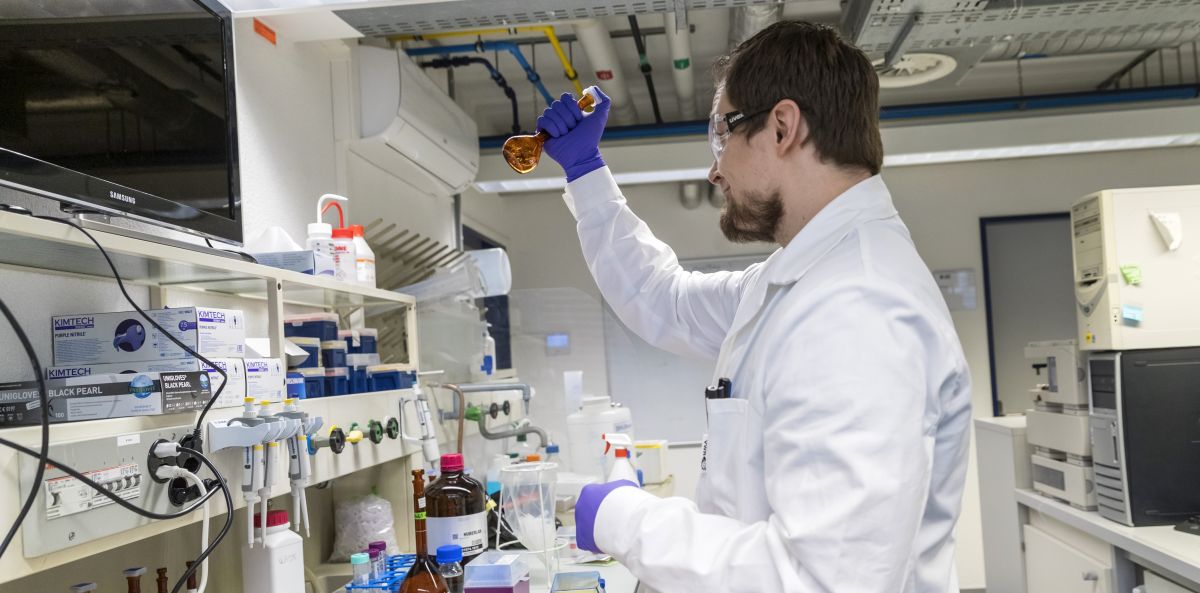
Innosuisse financially supports science-based innovation projects conducted by industrial partners jointly with a research partner in all subject areas. In addition to numerous SMEs and other organisations, start-ups also benefit. Recently, four start-ups have announced that their projects will be supported by Innosuisse.
Within the framework of the national innovation projects, Innosuisse covers the costs of the research partners. The four projects show the wide range of possible research partners. They include the ETHs, Universities and Universities of Applied Sciences, as well as institutions such as CSEM.
Pulsewave, BFH and Bern and Inselspital | CHF 480’000
Based in Biel/Bienne, Pulsewave is a digital health start-up developing TempleGuard, a remote patient monitoring device associated with patients’ eyewear, measuring vital signs, such as heart rate, blood pressure, and oxygen saturation behind the ear. In a new project with the Bern University of Applied Sciences and Inselspital, the start-up aims to advance the development of TempleGuard. Led by Peter Weisz, CEO of Pulsewave AG, the project receives support from Prof. Dr. Thomas Niederhauser, Head of the Institute for human centered engineering at BFH and PD Dr Emrush Rexhaj, Head of the Hypertension department at the Inselspital. The project partners plan to achieve clinical valuable patient data after 10 months of joint research and development. The first part of the Innosuisse grant has a volume of CHF 480’000.
Flowbone, EPFL and ETH Zürich | CHF 800’000
Osteoporosis is a degenerative disease that weakens bones leading to breakage, and it costs the US and European healthcare systems up to $52 billion annually. Medtech start-up flowbone and researchers from the EPFL and ETH have launched a 2-year project to advance the development of a new solution to decrease the incidence of osteoporotic hip fractures. Flowbone engineered a breakthrough nano-based biomaterial for bone regeneration. It is composed of hydrogel and a very low percentage of nanoparticles made of the mineral also naturally present in bone. This unique formulation has a low viscosity, which preserves existing bone during injection and fills the irregular voids in the osteoporotic bone. The material is supplied in a ready-to-use syringe and injected percutaneously into the bone in a minimally invasive procedure under local anaesthesia and radiological guidance. A grant from Innosuisse supports the CHF 800’000 project.
Topadur, University Hospital Zurich/University of Zurich | CHF 607’000
TOPADUR Pharma AG, a clinical-stage biopharmaceutical start-up company developing first-in-class drugs for ageing diseases, and the University Hospital Zurich have received a CHF 607K Innosuisse grant to establish a new therapeutic approach to treat diabetic retinopathy (DR). Among diabetic patients, the global prevalence of DR is estimated to be around 35%, of which a third have vision-threatening diabetic retinopathy. Diagnosis is often delayed until after the retina is severely damaged. Current treatments can slow the progression of the disease, but there is no cure and vision cannot be restored. This project supports Topadur’s R&D activities in ophthalmology supported by a renowned investigator in the retina biology field from UZH and focuses on developing a breakthrough therapy for the treatment of diabetic retinopathy and other retinal eye diseases.
Zynnon, Swiss innovation center CSEM and La Source Institute and School of Nursing | CHF800,000
Using the Internet of Things and Artificial Intelligence, Zynnon develops a solution to detect the risk of respiratory infection transmission in hospitals and health facilities. Respiratory infections are the third most common cause of death globally, accounting for up to 4% of deaths each year. Airborne transmission is a recognised pathway of contagion of many pathogens such as influenza, tuberculosis, measles, and SARS-CoV-2. Innosussie is funding the project of Zynnon and its research partners CSEM and La Source Institute and School of Nursing with CHF800,000 to improve the real-time monitoring of risks associated with airborne pathogen transmission indoors. The 24 months project plans to build the first system to measure the risk of infection transmission in indoor settings using multimodal contactless sensing and cloud-based artificial intelligence. The proposed system will be developed using a cross-field approach combining engineering, data analytics, and medical expertise. The development process will incorporate inputs from clinicians and domain experts, and a pilot study with clinical experts will form the basis for the system’s functional validation.
More information about national innovation projects can be found on the Innosuisse website.
(Press release / RAN)
Picture: Topadur Lab, Innosuisse / Alessandro Della Bella























































Please login or sign up to comment.
Commenting guidelines